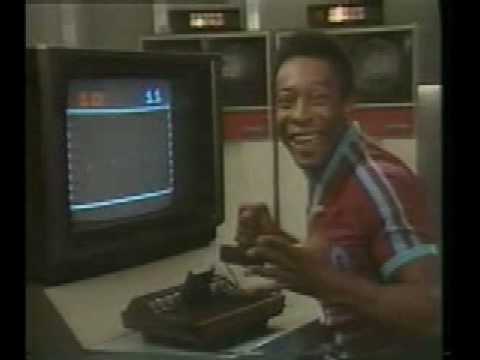In 1977, the year the Apple II was introduced, Tom Landry, coach of the Dallas Cowboys, was the focus of a People magazine article due to his forward-thinking reliance on computer data. Today the other kind of football (soccer) has joined, in earnest, the information revolution. And that makes a lot of sense. I’m not enough of a fan of the world’s game to say this with complete assuredness, but I think it’s likely that because of the size of the field and ball and the pace of the game, final scores are often as influenced by luck as by skill. (Chris Anderson and David Sally agree.) And single- or double-elimination tournaments seem particularly meaningless statistically, so it’s best to grasp whatever edge you can. From “The Winning Formula,” Joao Medeiros’ Wired UK piece about data’s entry into the Premier League, a passage about one coach who was an early adapter:
“Some managers, however, did get it — and one in particular was Clive Woodward. He had been the coach of England’s World Cup-winning rugby team in 2003, and in 2005 had been offered a one-year contract to serve as Southampton’s director of football. He had been the first coach to adapt Prozone to rugby, installing it at Twickenham four years before the World Cup, which allowed him to collect data on how England and its opponents played. ‘When I first saw it I was fascinated because I’d never seen a game where you’re looking down and just see dots and data and movement,’ Woodward says. ‘It removed a lot of the preconceived notions we had about how other teams played. It made a big difference when we started to see them as data, as opposed to teams we had never beaten before.’ Once, after his players insisted that there was no space on the field to run into, Woodward took a printout of a Prozone freeze-frame taken 24 seconds into a match against France. It showed both teams around the ball in a small area on the pitch and acres of unoccupied space everywhere else. He stuck it on board with the message: ‘The space is the green stuff.’
‘Clive would challenge me at every level,’ says Wilson about Woodward’s time at Southampton. ‘He would ask questions about every aspect of the game: why do we spend so much time working out how to score goals and not how to stop them? I would try to explain to him what they’re doing and he’d just keep asking why.’ Woodward and Wilson tried things such as filming players striking the ball, to study technique from a biomechanical perspective. Those initiatives, however, never had much impact. Redknapp left before the end of the year and Woodward departed at the end of his contract. Wilson had left the club shortly before Woodward, convinced that there was a better way of running a club. ‘Woodward believed that evidence, be it video or statistics or any kind of data, was fundamental to how you prepare a team,’ Wilson says. Woodward remains his biggest influence. ‘He taught me that we didn’t have to do things just because they had always been done in a certain way.’
Today, 19 of the 20 Premier League teams use Prozone. Each has its own team of performance analysts and data scientists looking for the indicators that quantify player performance, the events that determine matches and trends that characterise seasons. They are scientists dissecting the world’s most popular game, looking at data from Prozone and other sources to understand what dictates the difference between winning and losing. In the environment of the multimillion-pound Premier League, clubs don’t just want a competitive advantage, they need it.”
Tags: Clive Woodward, Joao Medeiros

